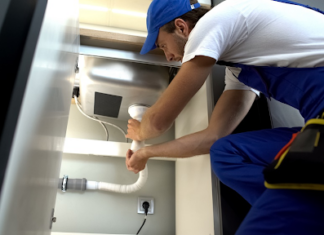
India is a globally known destination for medical tourism, offering savings of up to 90% in treatment expenses when compared to many western nations. Even though, the cost of healthcare in the country is often unaffordable for many of the residents here. Also, with a persistent rise in treatment expenses, the difficulty in funding healthcare is expected to become more pronounced.
- According to a 2019-20 review, inflation in the healthcare sector contributed around 40.2% to the rural and 26.9% to the urban miscellaneous inflation.
Given such rising costs, an average individual affected by lifestyle-related health issues can be under immense financial strain when funding his/her treatment at such times. The escalating cost of treatment can be attributed to various factors.
Factors leading to a rise in medical expenses in India
The following reasons represent why treatment is becoming unaffordable in the country with the passing time –
- Cost-intensive advancement in medical technology
Medical technology is continuously evolving, thus improving the overall healthcare facilities in India as well as globally. With the addition of new machinery and advanced technology, healthcare professionals today can diagnose and treat even the most complicated conditions. Although the prognosis has improved due to such advancements, expenses related to the same have escalated significantly.
- The Indian healthcare industry is dependent on import for 80 to 90% of the critical medical care devices.
A cost-intensive technology also means higher medical bills for patients, not to mention the increasing burden of a proposed cess chargeable on the import of medical technology.
- Lack of preventative care
Indians are often under the habit of consulting doctors after the onset of a health condition. Often the diagnosis is delayed, which also alters the course of treatment. For some health issues, diagnosis in the early stages may mean simple medication and lifestyle alterations. However, at later stages, surgery may be necessary. This habit of avoiding preventative care or routine medical check-ups also leads to an incremental rise in healthcare spending.
- Limited health insurance coverage
Health insurance penetration in India is limited, even today. With no coverage, individuals diagnosed with serious health issues need to finance their treatment without any external assistance. It eventually increases the overall expenditure on their part.
- Only 14.1% of the rural Indian population possesses health insurance cover.
- This figure is only slightly better in urban areas, where just 19.1% of individuals are covered under a medical insurance policy.
Unaffordable premium rates, along with a long list of exclusions, are responsible for this limited popularity of health insurance policies in the country. Fortunately, financial products, such as the Bajaj Finserv Digital Health EMI Network Card, offer an effective solution when it comes to funding an individual’s medical liabilities. Moreover, this health card is an affordable alternative to standard medical insurance plans.
- The increasing cost of drugs and consultations
The consultation charges and medication expenses have also increased significantly in the past decade or two. Today, even visiting a physician for a consultation can force one to pay a significant amount. Additionally, individuals with lifestyle diseases may rely on daily medications, which is a considerable investment.
All of these factors combined lead to substantial medical expenses, overburdening one’s finances. However, the inability to clear medical liabilities may create unnecessary stress while keeping the patient devoid of a suitable treatment. Such a situation may thus also force one to avail loans at high interest rates, which is an added burden.
Why should you opt for a health card?
A health card is a handy financial product that comes with a pre-approved credit limit. Cardholders can use this tool to avail healthcare facilities and services, without needing to pay from their own pockets immediately. Additionally, such a card allows one to convert the medical liabilities into convenient EMIs.
For instance, if an individual incurs a medical expense of Rs.2 lakh, he/she can choose to service this amount through EMIs in a year. Thus, rather than covering the substantial amount at one go, the individual can minimise financial strain and clear the bills via monthly payments.
Top Benefits of a health card
Health cardholders can look forward to the following benefits –
- Substantial pre-approved limit
The digital health card provides a pre-sanctioned credit limit of up to Rs.4 lakh to eligible applicants.
- Flexible repayment tenures
Individuals can opt for repayment terms ranging between 3 and 24 months. Such flexibility should help a cardholder finance the dues affordably, whether limited or substantial.
- Coverage for a diverse range of medical expenses
Regardless of the health issues one suffers from, a health card can likely provide financial assistance across various healthcare expenses. Cardholders can utilise the same for more than 800 essential and non-essential medical procedures.
- One card for the entire family
The health card benefits are not limited to just the cardholder. His/her family members, including spouse, children, parents, and siblings, can use the same card to fund medical expenses with ease.
- A substantial number of supported outlets
Individuals applying for a health card online can use the financing solution at more than 5,500 network medical facilities, located at over 1,000 cities in India.
- Discounts at select outlets
Card owners can also avail attractive discounts and offers at select pharmacies, clinics and other medical facilities.
- Nominal fee structure
Insta variants of a health card activate immediately and cost a one-time fee of Rs.707. Non-insta cards, on the other hand, are available against a nominal fee of Rs.589.
With these features and more, a digital health EMI network card can help one afford the rising healthcare expenses in India with ease. Selecting the convenient repayment process should further ease one’s financial strain.








